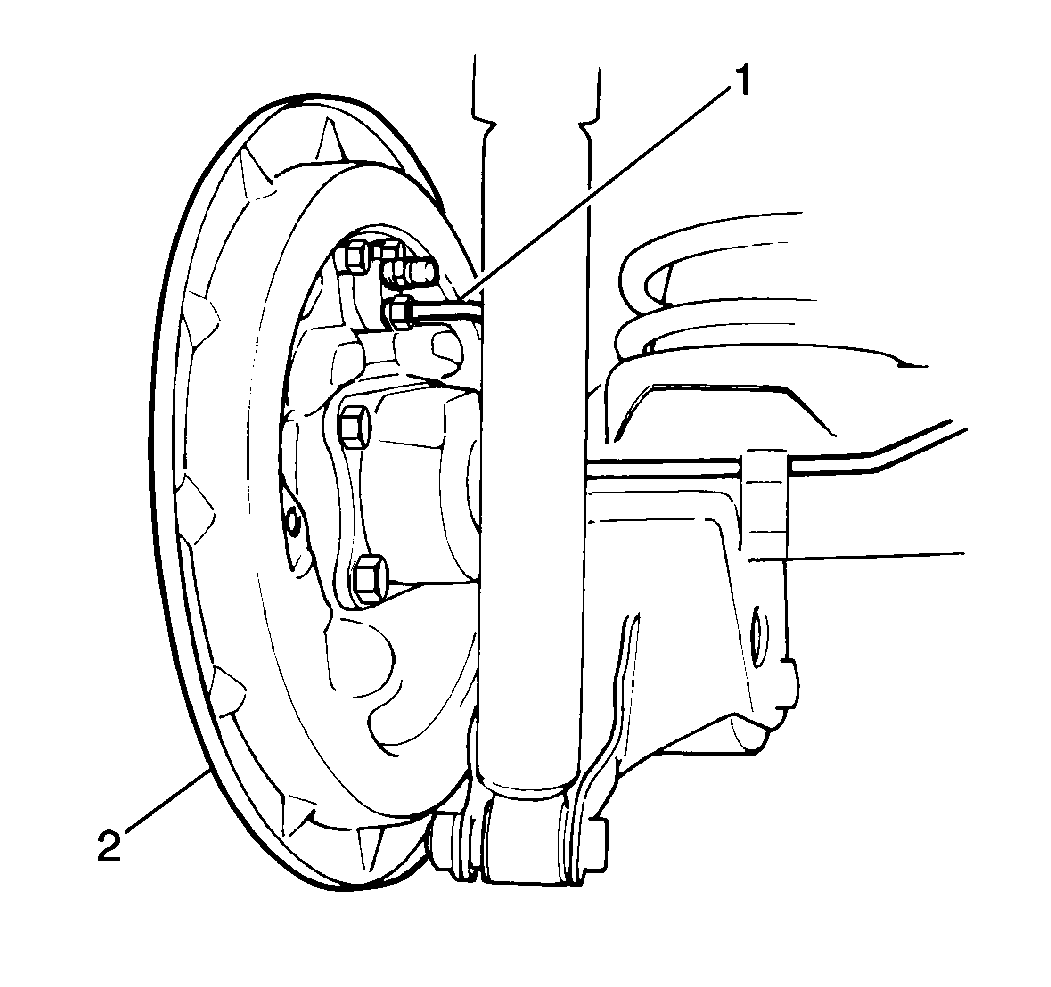Removal Procedure
- Remove the linings. Refer to Brake Shoe Replacement in this section.
- Clean dirt and foreign material from the wheel cylinder and the brake fluid pipe.
- Loosen the brake fluid pipe(s) (1) from the back of the wheel cylinder by loosening the flare nut(s) but only to the extent that brake fluid does not leak.
- Remove the two wheel cylinder retaining bolts from the rear of the backing plate (2).
- Disconnect the brake pipe(s) (1) from the wheel cylinder.
- Remove the bleeder valve cap and install it on the end of the brake fluid pipe (2) to prevent leaks or contamination.
- Remove the wheel cylinder from the vehicle.

Installation Procedure
- Install the wheel cylinder gasket (2) to the wheel cylinder (1).
- Remove the bleeder valve cap from the brake fluid pipe (1) and install on the bleeder valve.
- Install the wheel cylinder to the backing plate (2). Secure with two retaining bolts.
- Install the brake fluid pipe (1) to the back of the wheel cylinder. Secure with a flare nut.
- Install the brake shoes. Refer to Brake Shoe Replacement in this section.
- Inspect the brake fluid pipe-to-wheel cylinder connection for brake fluid leaks.
- Bleed the brake system. Refer to Master Cylinder Bench Bleeding in Hydraulic Brakes.


Notice: Use the correct fastener in the correct location. Replacement fasteners must be the correct part number for that application. Fasteners requiring replacement or fasteners requiring the use of thread locking compound or sealant are identified in the service procedure. Do not use paints, lubricants, or corrosion inhibitors on fasteners or fastener joint surfaces unless specified. These coatings affect fastener torque and joint clamping force and may damage the fastener. Use the correct tightening sequence and specifications when installing fasteners in order to avoid damage to parts and systems.
Tighten
Tighten the wheel cylinder retaining bolts to 12 N·m (106.2 lb in).
Tighten
Tighten the brake fluid pipe flare nut to 16 N·m (12 lb ft).
